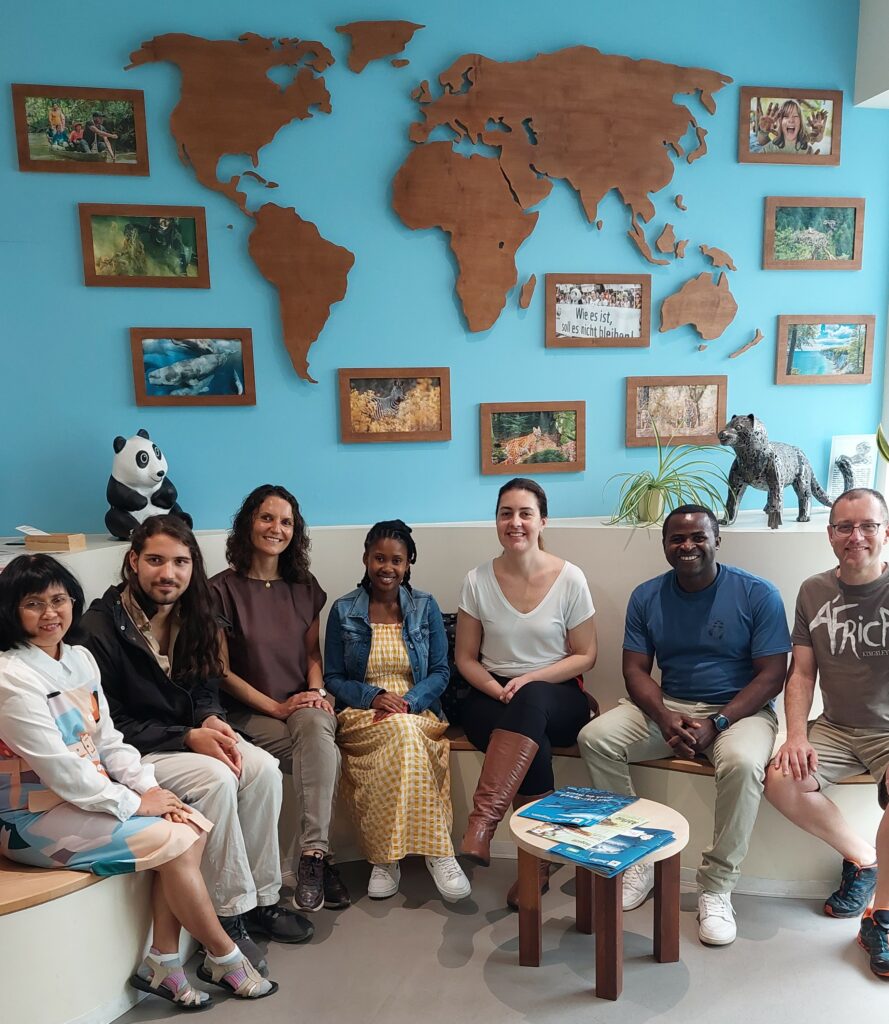By Itseng Tlamelo Mashadza and Aljoscha Böhm
It is often said that indigenous knowledge is fundamental to cultural complexities, and it considers language, systems of classification, and social interactions. As research students forming part of the Transcultural Caravan, we were privileged to interview Terence Fuh at the Worldwide Fund for Nature (WWF). Our topic focused on how indigenous knowledge can be used to save the world. Terence’s work extends beyond conservation into the realm of education and indigenous knowledge. The interview with Terence was insightful, interesting, and provided a unique perspective.
Interviews are a two-way street; it is not just about the interviewer getting information but also about the person being interviewed feeling heard and validated. The interview with Terence was more of a conversation than an interview. His work for the WWF revolves around collaborating with indigenous communities, whom he affectionately referred to as the “PhDs of the forest.” These indigenous experts possess invaluable knowledge about the intricacies of their natural surroundings, making them essential allies in conservation efforts.

One of the most compelling aspects of Terence’s work is his collaboration with indigenous guides who lead groups through the forest. These excursions not only provide invaluable opportunities for people to connect with nature but also generate funds for conservation initiatives. It is a win-win scenario that supports both the preservation of precious ecosystems and the livelihoods of indigenous communities.
As we reflect on our experience at WWF, it becomes evident that the intricate web of relationships between humans and the forest, in many ways, aligns with the core principles of Actor-Network Theory (ANT) by Bruno Latour. ANT’s notion of non-human agency delves into the very essence of how the social world is constituted, emphasizing the symmetrical study of human and non-human entities. This ontological perspective posits that society should be analyzed through a lens that acknowledges the active role of non-human elements.
Much like the forest itself, with its vibrant ecosystems, becomes an active participant in the network, influencing the dynamics of conservation, we need to underscore the distributed agential properties across the human/non-human divide. In the context of WWF’s work, the forest ecosystem isn’t merely a backdrop but an integral actor in shaping conservation efforts, whereas Indigenous People provide the epistemological frameworks to be able to work with the non-human agents. It breathes life into the principles of emphasizing the role of non-human actors, such as the forest or cultural artifacts, illustrating how the environment and its non-human components are not passive entities but dynamic forces in the realm of conservation.
Contributing towards knowledge generation can be a frightening experience. The interview with Terence highlighted the importance of unpacking and understanding indigenous knowledge systems. In addition, it is important to recognise indigenous knowledge as part of a necessary process of recognising history and rectifying relationships.
Special thanks to Terence Fuh and Lina Puerto.
